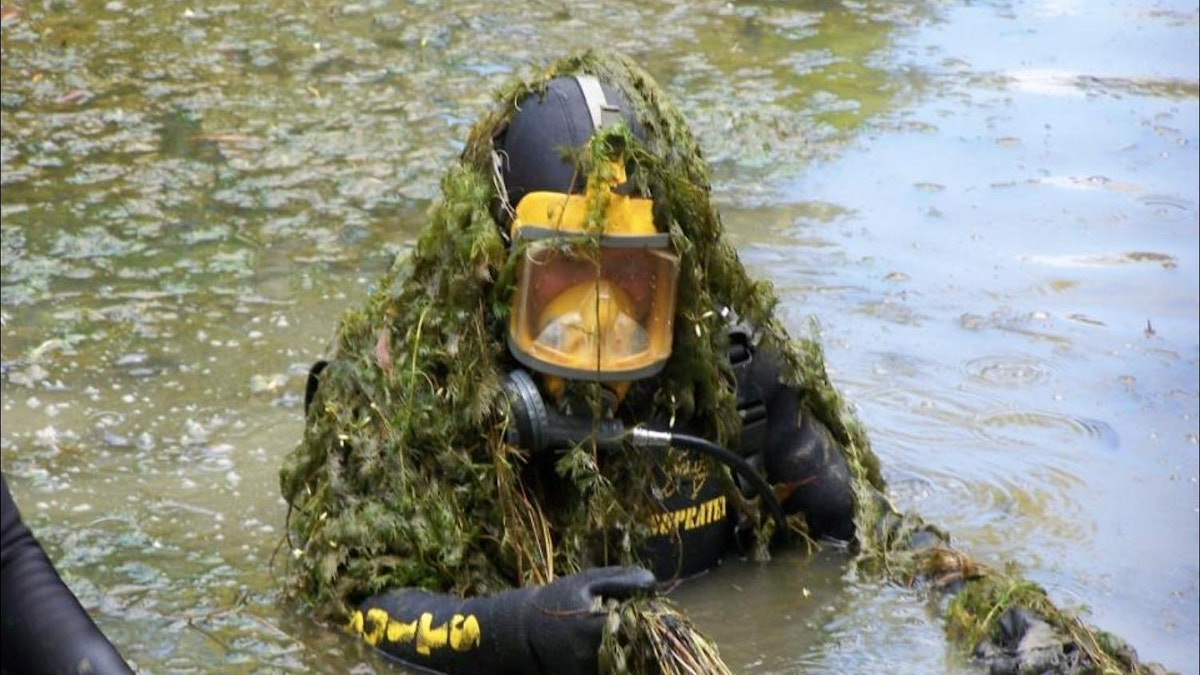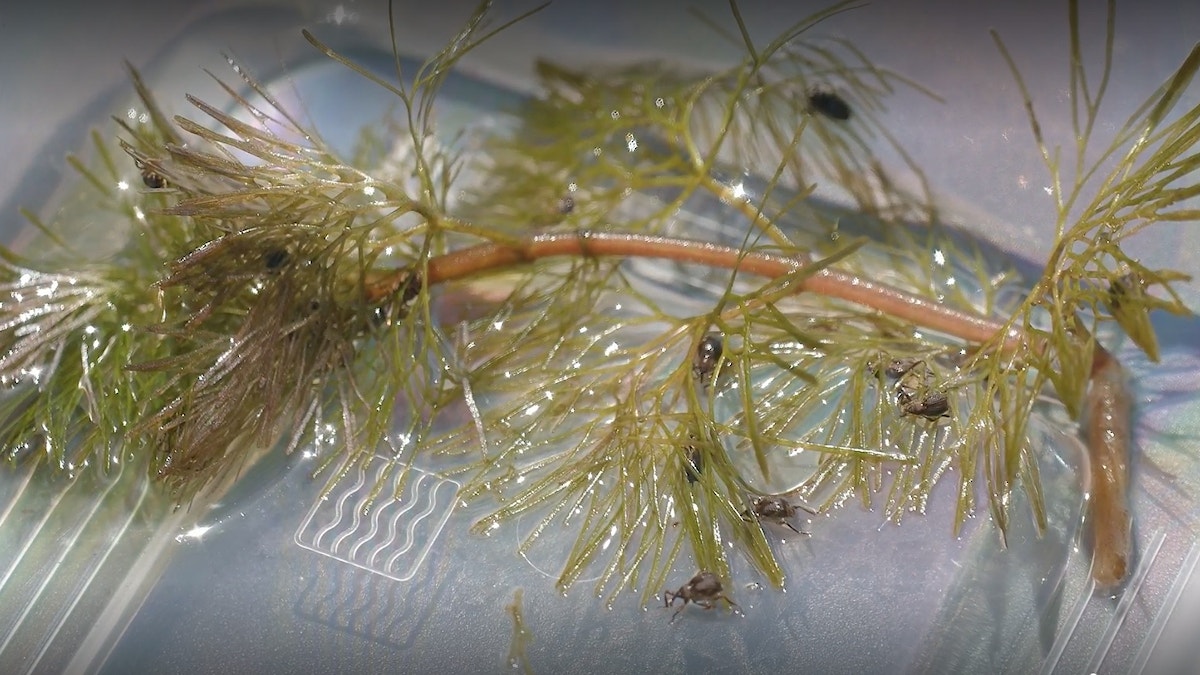
World first at Lake Kurwongbah
Published 5:00am 3 March 2023

 Words by Nick Crockford
Words by Nick Crockford
Pictured: A diver removing cabomba weed and showing its risk to recreation.
Lake Kurwongbah is being used in world-first research to stop a fast-spreading exotic weed infesting Australia’s waterways.
CSIRO, the national science agency and Seqwater are using a weevil smaller than a grain of rice, to tackle cabomba, which originates in South America.
The Petrie lake is seeing the first release of a biocontrol agent against cabomba anywhere in the world.
CSIRO scientist Kumaran Nagalingam said cabomba was introduced to Australia in 1967 as an aquarium plant and has since spread along the east coast from Cairns to Melbourne.
It costs Seqwater about $170,000 a year to manually remove cabomba from just three lakes.

“Cabomba grows up to 5cm a day, strangling native ecosystems, choking waterways and impacting native aquatic animal and plant populations,” Dr Nagalingam said.
“We also know that platypus numbers are lower in cabomba-infested creeks compared to those un-infested in northern Queensland.
“Our research in South America shows the cabomba weevil (Hydrotimetes natans) spends its entire life feeding only on cabomba.”
The cabomba weevil was tested on 17 Australian plant species closely related to cabomba as the most likely to be a potential food source.
Native plant species were offered to three generations of weevils for their entire life cycle. The weevils fed only on cabomba.

Seqwater Senior Research Scientist David Roberts said it has been 19 years since Seqwater supported the first efforts in Argentina to find a biocontrol agent for cabomba.
“It is great to finally see a successful control agent ready for use in south-east Queensland to halt the ongoing spread of this costly weed,” Dr Roberts said.
“Cabomba forms dense clumps that reduce light and water quality. The weed is so thick it makes swimming, fishing and canoeing difficult and dangerous.
“The weed also reduces the water holding capacity of dams and significantly adds to the cost of treating drinking water.”
In line with Department of Agriculture, Fisheries and Forestry protocols, every cabomba weevil was inspected for parasites or pathogens before leaving quarantine.
A purpose-built weevil nursery near Lake Kurwongbah is being used to rear weevils for future releases, one of which is planned for Lake MacDonald, near Noosa.
Related Stories
Top Stories

Info sessions for North Pine dam
Drop-in community sessions are being held over the next nine days for those wanting more information about Seqwater’s dam improvement program.


Popular Stories

Moreton Bay artists shine in 2024 Brisbane Portrait Prize
Four Moreton Bay artists are among the 64 finalists chosen from almost 600 entries in this year’s Brisbane Portrait Prize. See their works...

'Priority' given for Waraba plans
Waraba, formerly known as Caboolture West, will be the 36th Priority Development Area in Queensland, unlocking land for 30,000 new homes and an estimated 70,000 new residents.

Trai Fuller: ‘It’s always felt like home’
Praised by Wayne Bennett for his courageous style of play and loved by long-time Dolphins fans, Trai Fuller has locked in a two-year deal with the club he calls home. He tells us why it means so much to him













